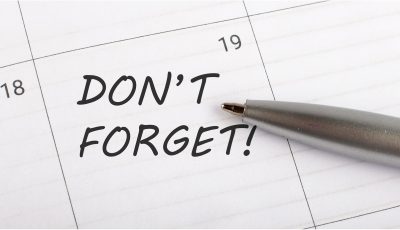The final run
Summertime is a season of travel and activity. And for this very reason it’s also the season to heed some wisdom from winter.
One late December afternoon in upstate New York, back when I was a newbie skier, my father and I were shoving off for our last run down the mountain.
“Be extra careful when you’re making your final run,” Dad said. “That’s when a lot of people get hurt.”
I took the advice to heart, even though it made me revise my plans. After all, I had intended to attack the slope with a last dash of reckless abandon. But on that final run I noticed Dad leading by example. He was taking a very leisurely run down the mountain with gentle, swooping turns.
The sun was setting, a cold wind was stirring, and the warmth of the lodge beckoned at the bottom of the mountain. The other skiers zoomed by us on their way to the lodge.
We at last finished the run. We took off our skis, walked into the lodge for hot chocolate, and I felt like I had been given a great secret. After all, Dad was an expert skier, so if we were going slow when everybody else was going fast there was certainly a good reason for it.
Of course, we were too late to get any seats near the fireplace. Those were already taken up by the faster skiers. The guy with the best seat had a fresh cast on his leg. Some of his pals were signing it with a magic marker.
It didn’t take long to accumulate anecdotal evidence that backed up Dad’s wisdom. Whether playing sports, in military training, or out in the working world, I noticed that the homestretch of something was often the time when somebody got hurt.
Even if I try to account for fatigue and other obvious factors, the “final run” seems to operate by its own logic. Trouble is, none of us can see that logic, but it’s up to us how we want to deal with it.
There’s no need to be somber about it. It’s just something that bears watching.
The notion of not pushing things too far has some ancient fans. Lao Tzu, a Chinese sage, wrote this about 2,500 years ago (translation by Derek Lin): “Holding a cup and overfilling it cannot be as good as stopping short.”
That is, by the way, metaphorical wisdom, not bartending advice.
Modern notions of efficiency often reject such wisdom, especially when it comes to money. There are, after all, a lot of beady eyes squinting through thick eyeglasses at detailed spreadsheets. In these domains the specter of letting some of the conceptual glass remain empty is “unoptimal.” The buffer zone of unfilled glass is taken away. As a consequence, there is a lot of hidden risk in many things, and the name of the game is to shift the risk onto other parties.
Fortunately, a sage of contemporary times, Nassim Nicholas Taleb, has addressed such things with great insight. Regular readers of my column are already aware of Taleb’s various books. I won’t bother listing them this time around. But I can’t resist poking you in the chest with the slobbery end of my cigar and noting that if you want to know how the world works, or at least that part of it that involves risks, Taleb is the man to follow.
If you’re wondering exactly which parts of the world involve risk, well, I think I’ve got a handle on that. Let me consult my list. Ah, here we go: Every component of the world involves risk.
With this in mind, as summertime enters the homestretch we can exercise a little bit of extra caution before we catch that last wave, drive that final 100 miles on a road trip, or jump on that zip line for a last thrill before hitting happy hour.
Yes, thanks to the “final run” theory I’ll leave the glass a little bit empty on those counts.
Dad would agree. Furthermore, it will save me the trouble of buying a magic marker.



























